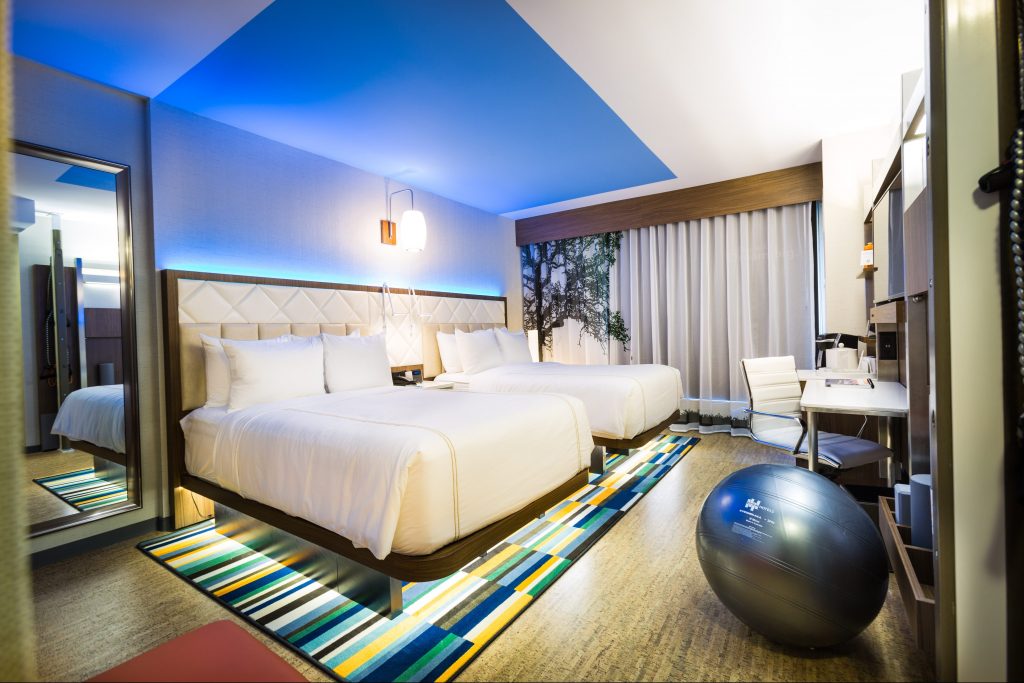Skift Take
Twenty-four hours is more lenient than 48 hours. We'd be surprised if IHG doesn't eventually make the move to 48-hours' notice like its peers Hilton and Marriott very soon.
The latest hotel company to announce change to its cancellation policy is InterContinental Hotels Group (IHG).
The U.K.-headquartered company whose brands include Holiday Inn, Crowne Plaza, Kimpton Hotels & Restaurants, and InterContinental Hotels, announced it will move the majority of its hotels to a 24-hour cancellation policy beginning this month.
An IHG spokesperson told Skift: “The changes to IHG’s cancellation policy will provide our guests with greater consistency when managing their reservations and offer certainty for our owners. IHG’s previous cancellation policy varied by both region and brand, and this new change will mean that the majority of the IHG estate will now operate under similar terms. Guests will have one day prior to arrival to cancel their reservations without penalty, which still leaves them with 24 hours if they need to cancel their booking.”
The rollout will begin region by region, beginning July 28 in Europe and August 4 in the Americas. By the end of September, IHG’s properties in Asia, the Middle East, and Africa will adopt the new policy, with the exception of China.
In China, 85 percent of IHG’s hotels have a same-day cancellation policy, and the remaining 15 percent have policies that range from one day up to nine days prior to arrival. Kimpton Hotels & Restaurants currently has a 48-hour cancellation policy in place and there will be no change in its policy.
The cancellation for Reward Nights will remain as it is today and follows the hotel house cancellation policy.
IHG’s cancellation policy change follows recent announcements by Marriott and Hilton, both of which announced a shift to a 48-hour cancellation policy, reflecting an industry shift in the way hotels are approaching cancellations.
Marriott announced its new policy, which impacts hotels in the Americas across all brands with the exception of Design Hotels and Marriott Vacations Worldwide, on June 15. A Marriott spokesperson said “The revised policy allows us to make rooms available to guests that would have otherwise gone unoccupied due to a last-minute cancellation.”
Hilton will soon implement its own version of this cancellation policy by the end of this month for its hotels in the U.S. and Canada, and echoed Marriott’s comments as to why it was changing its policy: “We regularly review guest booking and cancellation patterns across our 5,000+ properties, and have seen cancellation rates rise the last few years. These insights have led to the proposed update, which will allow us to maximize the number of available rooms for guests seeking accommodation. Business travelers, leisure travelers, and hotel owners will all benefit from access to rooms that would previously have gone unused.”
Marriott and Hilton’s new cancellation policies have been met with some criticism from corporate travel buyers and travel management companies. However, some, including TripBAM, have estimated that the negative impact of these stricter policies won’t be as significant as some may have initially thought, because approximately 5 percent of business travelers cancel their trip within48 hours of check-in.
Steve Reynolds, CEO of TripBAM, said hotels are pursuing these new cancellation policies simply because they make good business sense.
“It’s a revenue stream,” Reynolds said. “What they are trying to do is reduce some of the volatility round their occupancy. If I have people cancel last minute, that’s a lot of rooms I have to sell last minute. It gets really painful, and they want less volatility three to five days out as much as they can.”
Have a confidential tip for Skift? Get in touch
Tags: ihg, intercontinental hotels group
Photo credit: EVEN Hotels New York Times Square South. InterContinental Hotels Group is changing its cancellation policy for EVEN and its other brands to 24 hours. InterContinental Hotels Group
